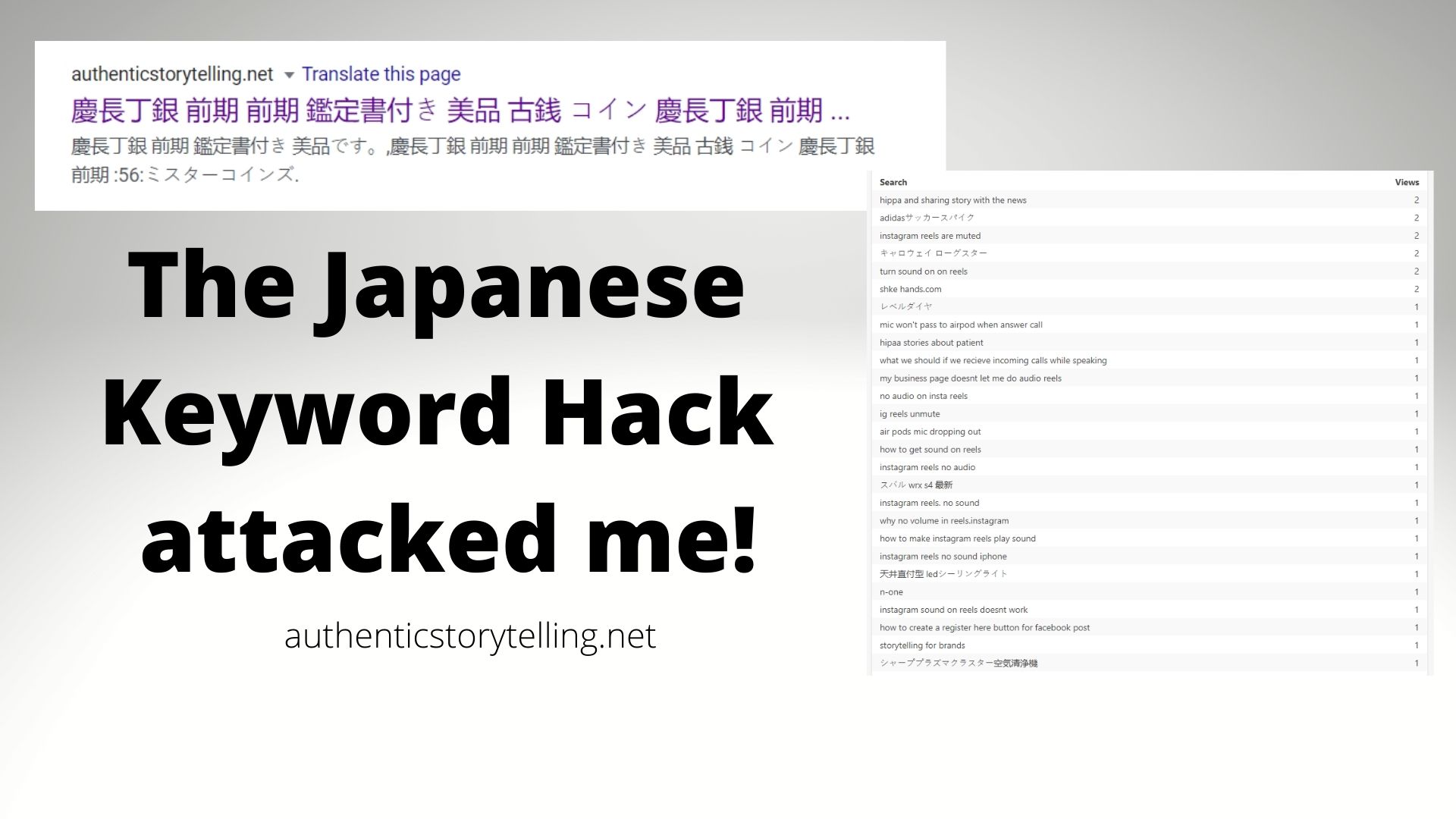Trappe Digital LLC may earn commissions from sponsored links and content. When you click and buy you also support us.
I prefer to spend my time on content strategy, collaboration, production and distribution. But sometimes our efforts get derailed by security issues – like the Japanese Keyword Hack. Thanks to Sucuri the hack has been cleaned up and my site is back up and running. For a couple of days it was a mess though.
In this article I discuss:
- What happens during the Japanese Keyword Hack
- How long does it take to recover form it
- Backup marketing and content plans while your site is down
I sang the praises of Sucuri also in this podcast episode published in 2019 when I discuss how to deal with malware on your website.
What happens during the Japanese Keyword Hack
I first noticed the hack when I was working on an article and no matter where I clicked I was sent off site. Ugh. Something was going on. I hopped right over to Sucuri and filed an immediate ticket. The website still worked externally, but I couldn’t do much on the backend.
Then I was restricted from logging in completely. That happens because the Japanese Keyword Hack removes the WordPress login file.
Then I got a notification that a new user was added to my Google Search Console for this site. What a mess. That was easy enough to fix though. Just log into your Google Search Console account and remove the user under user management.
Meanwhile, I was looking around my hosting account and noticed that a bunch of email addresses were created there as well. So I deleted them and restricted other access like FTPs. I also changed all the passwords. In the meantime, Sucuri was cleaning up and fixing the mess for me and restored my site.
 I also saw a number of Japanese keywords showing in my organic traffic. Those are spam keywords that the keyword hack adds into your site. They even show up in your title tags on Search Engine Results Pages for a while. Google didn’t blacklist my site but promptly removed me from search results. Traffic was tanking!
I also saw a number of Japanese keywords showing in my organic traffic. Those are spam keywords that the keyword hack adds into your site. They even show up in your title tags on Search Engine Results Pages for a while. Google didn’t blacklist my site but promptly removed me from search results. Traffic was tanking!
How long does it take to recover from the Japanese Keyword Hack?
It took a couple of days, which can mean some serious revenue, depending your revenue streams. I saw a drop in Google Ads revenue and also couldn’t send examples of my work to potential clients and future employers. So it’s a definite hassle.
Once all the technical stuff is fixed, you’ll have to resubmit your site to Google, which Sucuri did for me, reminding me that it can take a few weeks for a site to be re-indexed. The site started showing on results pages relatively quickly but was showing Japanese words in the taglines. Sucuri reminded me that this should be updated after the re-index.
It probably wasn’t a huge deal to have the spam Japanese keywords showing at that time anyway. My site really wasn’t ranking for anything during that period. Including my own name!
But: Google had re-indexed my site within four hours or so and everything started to return back to normal.
Total timeline:
- Thursday morning: Hack discovered
- Saturday morning: Everything seemed restored
- Saturday afternoon: Showing with English words in search results
- Organic traffic was returning
Backup content plans when the Japanese Keyword Hack happens
I sternly believe that a company’s website should be the centerpiece of any digital marketing strategy. I still believe that, but it’s also smart to have other systems that are not connected in place in case the website goes down or falls victim to the Japanese Keyword Hack or another malicious attack. Even if a site is just down for a few hours, having a backup option can be good.
In my case, I went to Buffer and updated my social posts. There was no need to send people to a site that was down or showing as malicious. I didn’t even mention the site being down on social media and just updated posts.
I also have a separate landing page for my podcast over on Podpage.
That still allowed me to send people links to my podcast episodes and I was actually asked for some examples during this downtime.
Having a separate email marketing tool can also help at least keep email marketing going during this time.
Read next: [MEASURING RESULTS] How many web analytics services should I use on my website?
Getting hacked certainly is not a good experience and can really put a damper into productivity, revenue and progress. Fingers crossed that it doesn’t happen to you, or me again and we can just focus on crating content that makes a difference.

